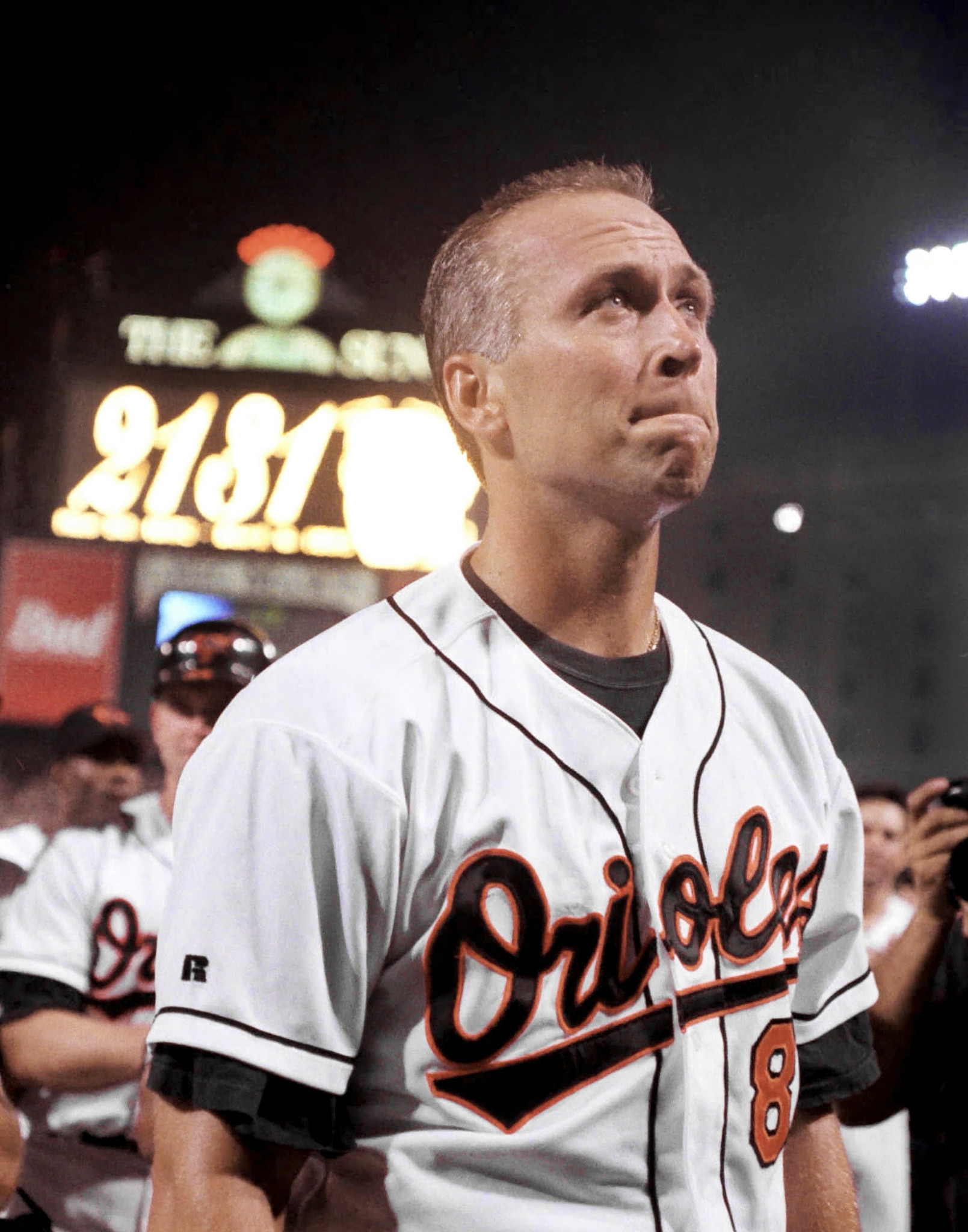On September 6, 1995, Calvin Edwin Ripken Jr., known simply as Cal, broke the all-time consecutive-games streak record that had been held by baseball icon Lou Gehrig. Gehrig’s streak ended on May 2, 1939, as a result of the onset of ALS—which came to be known as Lou Gehrig’s Disease. Gehrig’s record of 2,030 consecutive games seemed unbreakable: Cal Ripken Jr. broke the record that night, and then extended the streakto 2,632 games, making his achievement almost otherworldly. Here’s a look at some facts and special stats about the streak.
Some quick-hit tidbits about the Hall of Famer:
- Ripken also holds the Major League record of 8,243 straight innings, a streak that started on June 5, 1982, and covered over 900 games.
- Ripken’s streak of 2,632 games is more total games played than by all but 33 other players in baseball history.
- Ripken’s record is more than twice that of NL all-time consecutive-game leader Steve Garvey, who had 1,207 (1975–1983).
- He was an American League All-Star 19 times! He was Rookie of the Year (’82), a two-time AL MVP (’83, ’91) and the All-Star Game MVP in ’91 and 2001.
- When he broke Gehrig’s record, Ripken had missed only 164 of the 19,386 innings the Orioles had played. That’s 99% of the innings played.
Ripken set the record, breaking Lou Gehrig’s streak, after 4½ innings.
The game was held up for 22 minutes to acknowledge the feat…in the middle of the 5th inning. Why? Because in baseball, as most fans know, a game becomes “official” at the end of the 5th inning…but that’s only when the game is tied or the visiting team is leading. The Orioles were ahead 3-1 going into the bottom of the 5th, so the game was official.
Cal Ripken’s streak of 2,362 officially started on May 30, 1982, and ended 16 years later on September 19, 1998.
But did you also know that he had played in 22 straight games right before that…but had sat out the second game of a doubleheader on May 29th? Though he played that day (in the first game), sitting out the second game of the day affected the consecutive game streak. Ripken also played in all 28 playoff games that the Orioles participated in during his career. But of course, playoff games don’t count toward the record.
The streak-breaking game was one of the most watched in history.
The game was televised by ESPN, and it ranks as one of the most-watched and memorable baseball games in baseball history. President Bill Clinton and Vice President Al Gore were both at the game. When the game became official, a large banner and game “counter” were changed from “2,130” to “2,131.”
Ripken played in only 113 games in 1994, and 144 in ’95. But his streak was alive.
During the 1994 season, the eighth work stoppage in baseball occurred as players went on strike. Because of that, 58 games were canceled, ending the season. Even though the strike “ended” on April 2nd the next year, the start of the 1995 season was postponed for three weeks.
Owners and players agreed to start the season three weeks late, but to end it on the scheduled date, creating a shortened 144-game season, not the normal 162 games. Baseball fans missed out on 70 games in ’94 and ’95—but Ripken didn’t “miss” a game because none were played for those 232 days. Had the owners used replacement players, as they almost did, Ripken’s streak would have ended.
Timing and determination were on Ripken’s side.
Ripken had two children born during the streak. As luck would have it, they were born on days when the Orioles didn’t play, so there was no decision necessary about missing a game to attend their births. Two ankle sprains almost sidelined him, as well as a knee sprain from an on-field brawl, but he benefited from breaks in the schedule, trainer’s tape, and his own grit and determination. Ripken quietly ended the streak at 2,632 on his own terms.
Ripken quietly ended the streak at 2,632 on his own terms.
About a week before the end of the 1998 season, Ripken decided, quietly, to end his streak at 2,632 games. The Orioles were having a disappointing season and were not going to make the playoffs. More than that, he didn’t want to spend an entire off-season with the streak lingering as an issue. Only his immediate family and a few associates knew of the decision, or at least that it was coming. So, at 7:30 p.m. on September 20, 1998, he simply went into the manager’s office and said, “It’s time.” Here’s what Ripken said about it:
I thought about it, talked to my wife and decided, ‘Let’s end it in the same place it started. In my home state. In front of friends and family. In front of the best fans in the world.’Joe Strauss, writer for the Baltimore Sun, wrote this the next day:
After Chuck Knoblauch grounded out for the game’s first out, the stadium video screen in center field focused on Ripken seated in the Orioles dugout. Applause built quickly and the Yankees bench emptied onto the warning track in front of the dugout…He left the bench, acknowledged the crowd and returned to the first-base dugout well. Neither a sellout crowd, his teammates nor the Yankees were prepared to let him stay there.
After ending his streak, Ripken played three more seasons.
Ripken had three years of baseball left in him after the streak ended and played in 86 games in 1999, 83 games the next year and 128 games in 2001, his final year. He was 41 years old when he retired. He made the All-Star team each of those three years.
http://www.nytimes.com/2009/09/12/sports/baseball/12curry.html; Baltimore Sun. Sept. 20, 1998; baseball-reference.com; Wikipedia (Cal Ripken)

